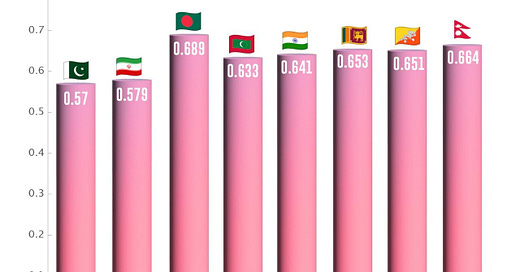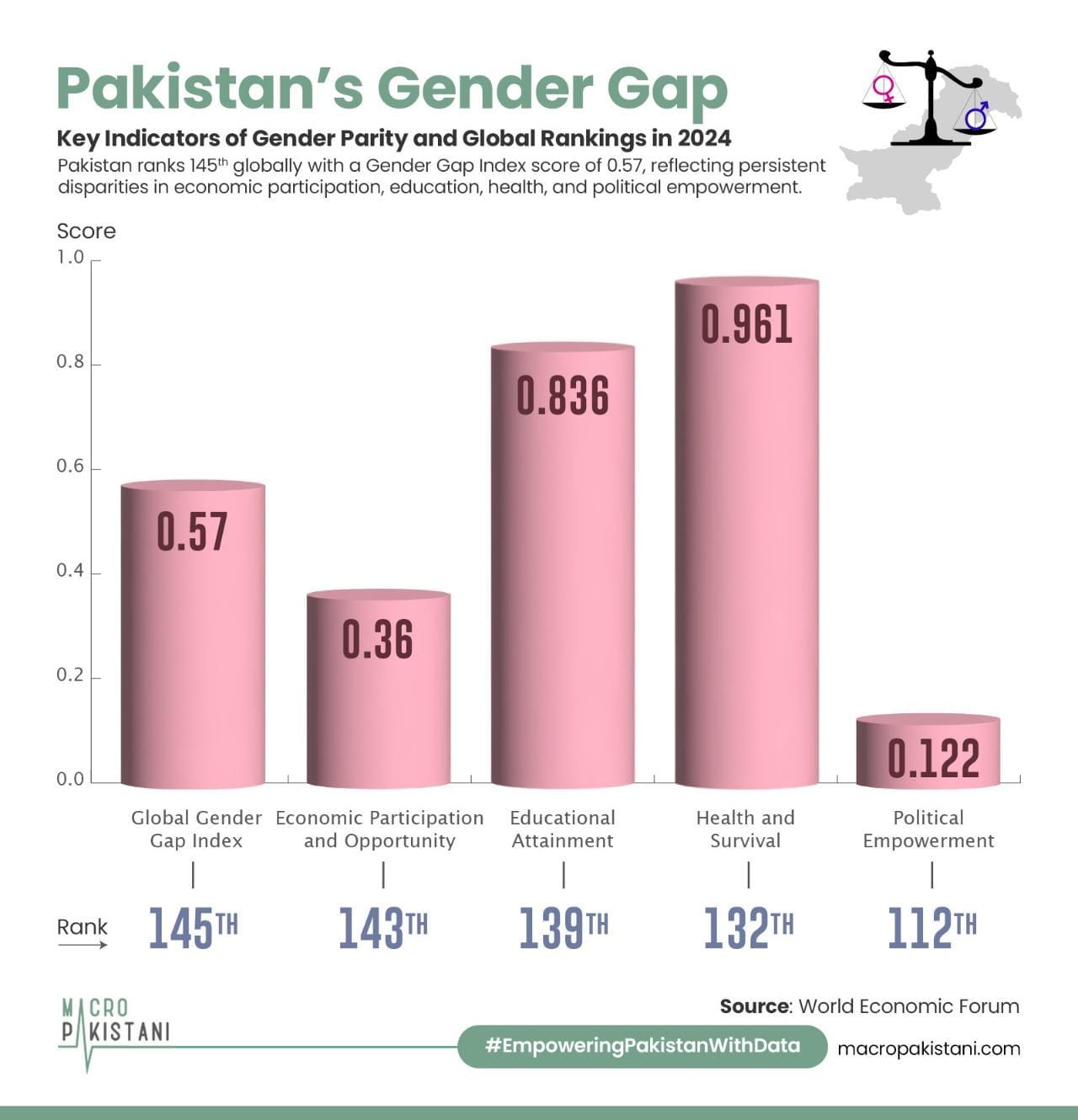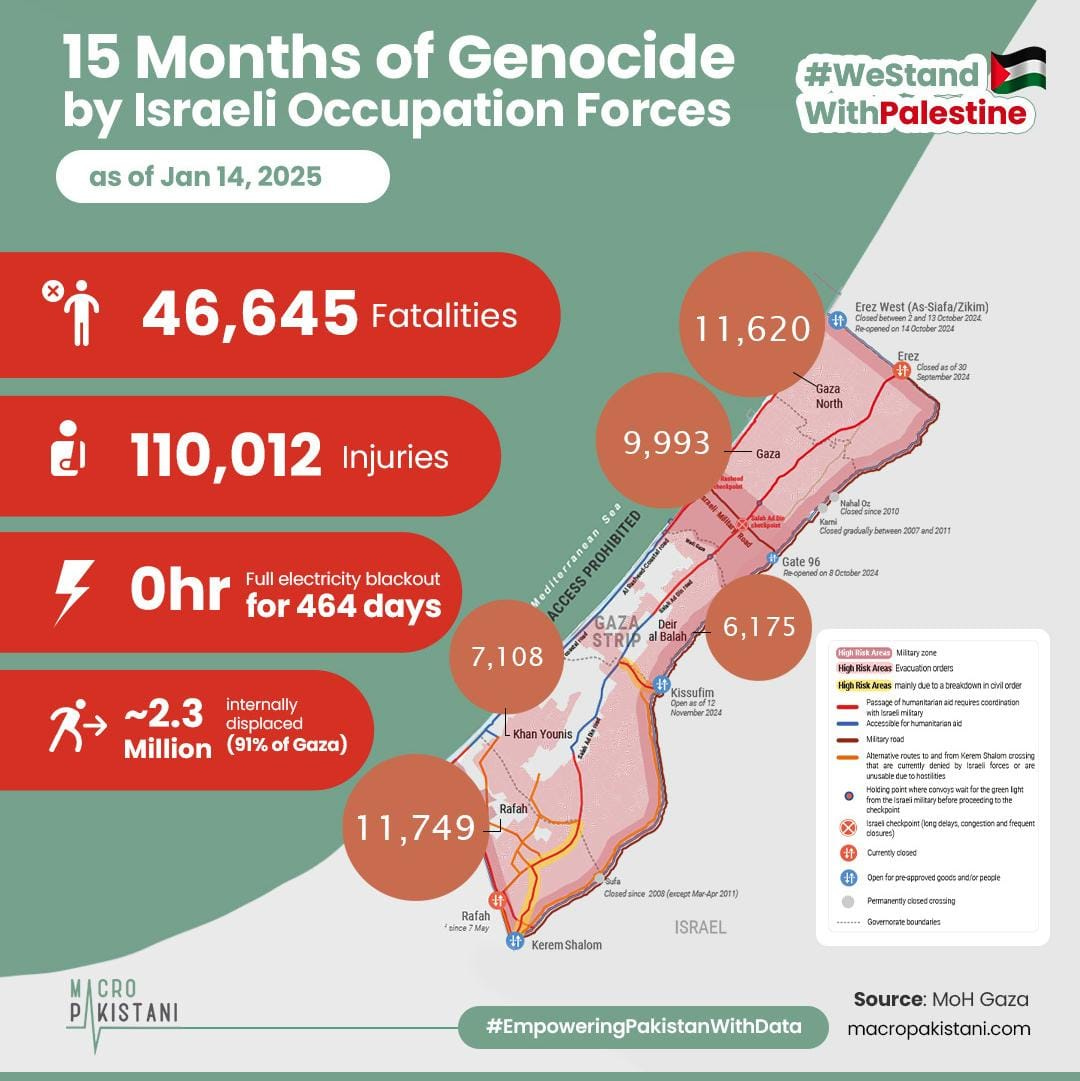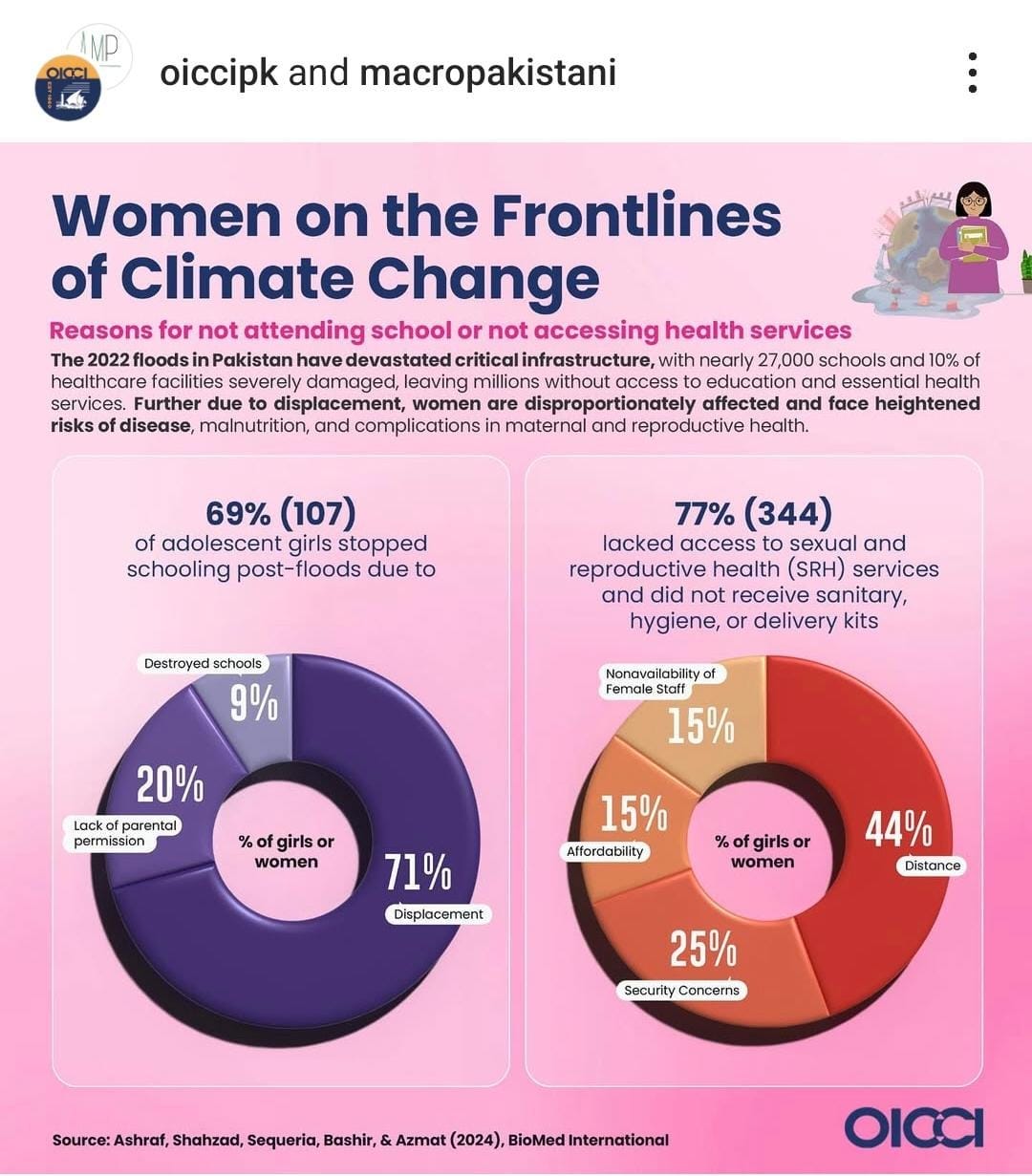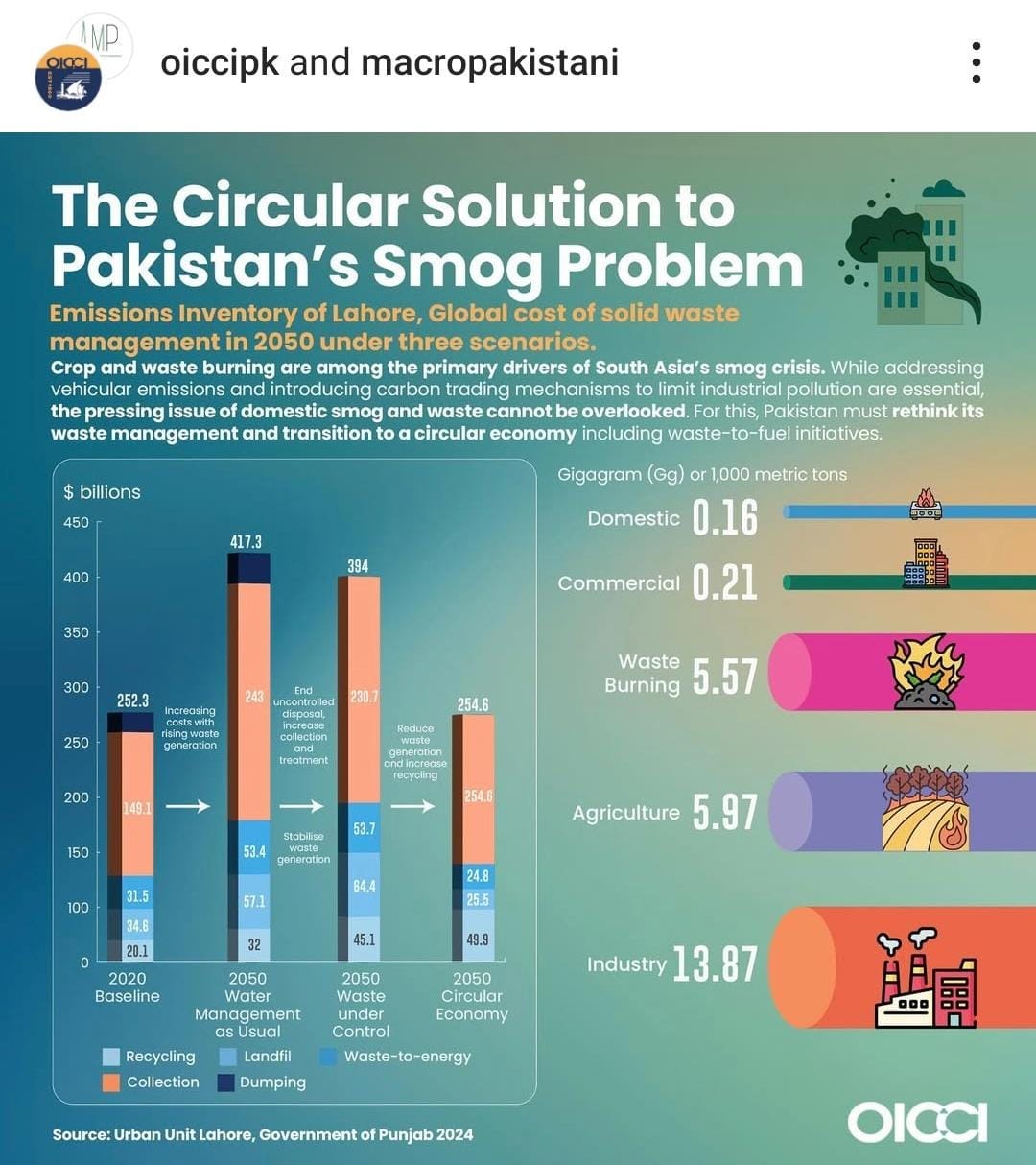Gender Disparity in Pakistan
Pakistan ranks 145th in the Global Gender Gap Index with a score of 0.57, showcasing significant challenges in economic participation, education, and political empowerment.
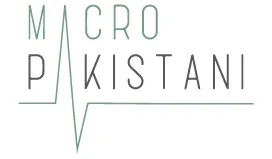
Gender disparity remains a persistent challenge in Pakistan, as reflected in its ranking of 145th on the 2024 Global Gender Gap Index. With an overall gender parity score of just 57%, Pakistan demonstrates significant gaps across all dimensions, including Economic Participation, Educational Attainment, Health and Survival, and Political Empowerment. The country's most pressing issue lies in economic disparity, where women have access to only 36% of the opportunities available to men. This is underscored by a staggeringly low representation of women in senior leadership roles, with female legislators, senior officials, and managers comprising less than 6% of the total workforce in these positions. Furthermore, income inequality persists as one of the widest gaps globally, with a difference of 75.1 percentage points between men’s and women’s estimated earned income. While Pakistan has made some progress in closing the labor-force participation gap, women’s participation remains alarmingly low at 30.4%, ranking 140th globally.
What strategies can be implemented to significantly increase women's presence in the workforce and leadership positions in Pakistan?
Educational attainment in Pakistan shows a mixed trajectory, with some areas of improvement but ongoing challenges that hinder gender parity. Since 2006, the country has steadily improved in primary, secondary, and tertiary education enrollment, with scores of 87.6%, 84.3%, and 92.6%, respectively. Despite this progress, Pakistan still ranks 139th in the Educational Attainment subindex due to a persistent gender gap in literacy. The female literacy rate stands at just 67.1%, significantly lower than the global average. This disparity reflects systemic barriers to educational access and quality for girls and women, particularly in rural areas. Addressing these issues requires targeted interventions, such as increasing investment in female education, improving infrastructure, and implementing community awareness campaigns to change societal attitudes toward girls’ education.
Political representation for women in Pakistan is another area of concern, as evidenced by the country's low scores in the Political Empowerment subindex. While the country has historically had a woman serve as prime minister, the overall political landscape remains dominated by men. To address this imbalance, Pakistan could benefit from introducing gender quotas, providing leadership training for women, and fostering an inclusive political culture that encourages female participation at all levels of governance. Increasing women’s representation in politics is essential for ensuring that their perspectives and needs are adequately reflected in policymaking, ultimately driving more equitable social and economic outcomes.
GRAPHIC
Women and girls are disproportionately impacted by climate change, with 4 out of 5 displaced being women, facing increased risks of violence, disease, malnutrition, and complications in maternal and reproductive health. The 2022 floods in Pakistan left nearly 27,000 schools and 10% of healthcare facilities damaged, disrupting access to education and health services. 70% of adolescent girls stopped schooling post-floods, and 77% lacked access to reproductive health services.
Pakistan produces 50 metric tons of waste annually, most of which is dumped or burnt, exacerbating smog and harming public health and productivity by increasing absenteeism, reducing consumer activity, and straining business revenues.
Transitioning to a circular economy offers a viable solution to these challenges: plastic waste alone could generate $1.2 billion annually and create jobs, while agricultural waste can fuel bioenergy and fertilisers, and domestic waste can support recycling and clean energy initiatives. These measures could improve air quality, boost economic growth, and drive sustainability in Pakistan.
Macro Pakistanis who read this newsletter can directly give us feedback via Substack chat:
Data Visualization & Marketing Partner: Brand Nib
Visit: https://macropakistani.com/advertise/
Grateful for the ever-growing list of collaborators!
About Us: Macro Pakistani is a data-driven research platform that aims to provide a basic understanding of Pakistan’s economy. If you have an interest in contemporary news but are currently overburdened with sensationalism and specialized vocabulary, we are the platform for you.
How are we doing? Please send us any questions, comments or suggestions by replying to this email.
